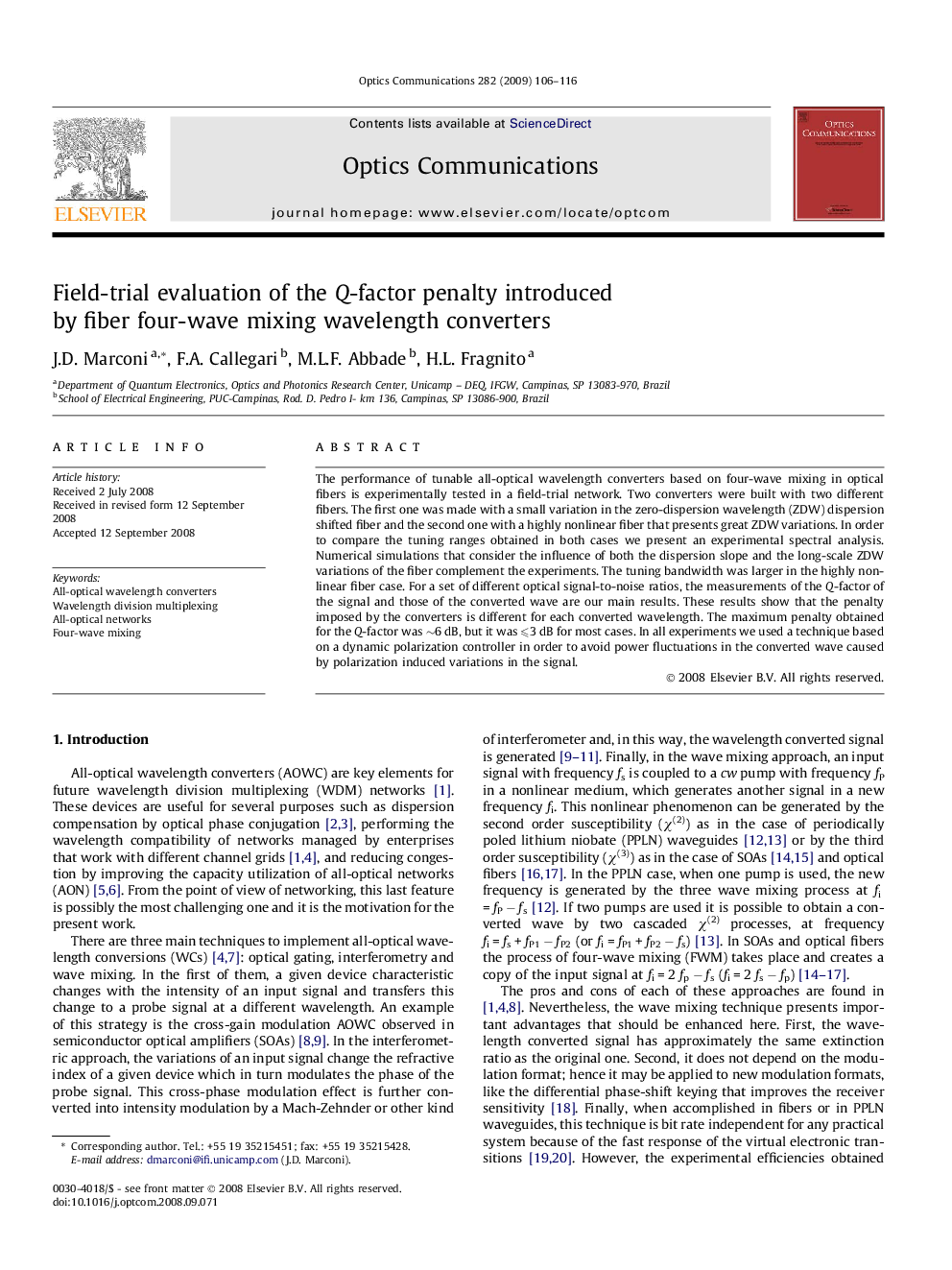| Article ID | Journal | Published Year | Pages | File Type |
|---|---|---|---|---|
| 1539560 | Optics Communications | 2009 | 11 Pages |
Abstract
The performance of tunable all-optical wavelength converters based on four-wave mixing in optical fibers is experimentally tested in a field-trial network. Two converters were built with two different fibers. The first one was made with a small variation in the zero-dispersion wavelength (ZDW) dispersion shifted fiber and the second one with a highly nonlinear fiber that presents great ZDW variations. In order to compare the tuning ranges obtained in both cases we present an experimental spectral analysis. Numerical simulations that consider the influence of both the dispersion slope and the long-scale ZDW variations of the fiber complement the experiments. The tuning bandwidth was larger in the highly nonlinear fiber case. For a set of different optical signal-to-noise ratios, the measurements of the Q-factor of the signal and those of the converted wave are our main results. These results show that the penalty imposed by the converters is different for each converted wavelength. The maximum penalty obtained for the Q-factor was â¼6 dB, but it was ⩽3 dB for most cases. In all experiments we used a technique based on a dynamic polarization controller in order to avoid power fluctuations in the converted wave caused by polarization induced variations in the signal.
Related Topics
Physical Sciences and Engineering
Materials Science
Electronic, Optical and Magnetic Materials
Authors
J.D. Marconi, F.A. Callegari, M.L.F. Abbade, H.L. Fragnito,
